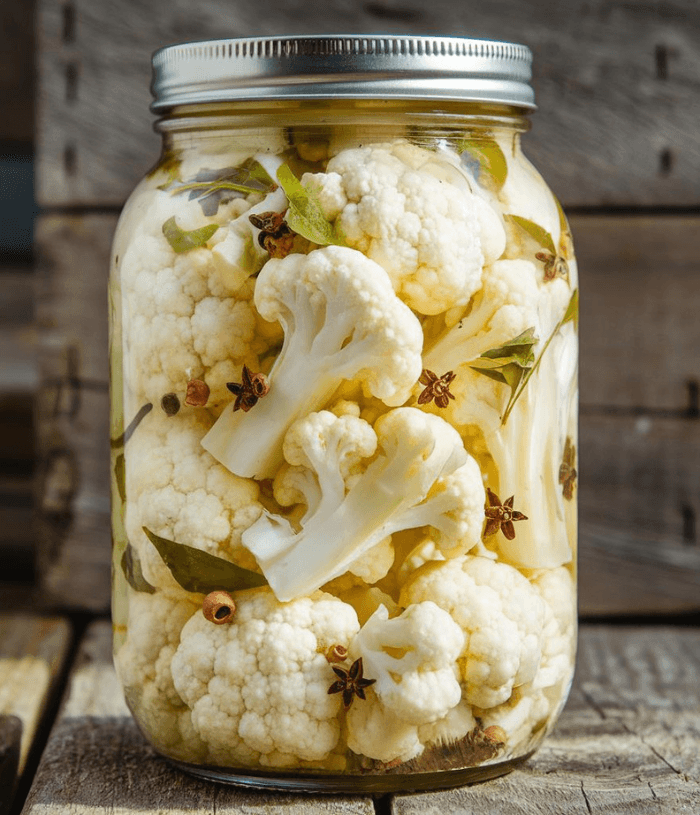If you love sauerkraut, you know how versatile and delicious this fermented cabbage can be. With its tangy flavor and health benefits, sauerkraut adds a unique twist to meals while offering a dose of probiotics. But what if you have more sauerkraut than you can use in time? You may wonder, Can you freeze sauerkraut? Today, we’ll walk through everything you need to know about freezing sauerkraut, including the benefits, the best way to freeze it, and how freezing may affect its texture and flavor.
Table of Contents
ToggleWhat is Sauerkraut?
Before diving into freezing, let’s quickly review what sauerkraut is. Sauerkraut, which translates to “sour cabbage” in German, is made by fermenting cabbage in a salty brine. This fermentation process encourages the growth of beneficial bacteria, or probiotics, which contribute to gut health. It’s used as a topping for hot dogs, a side dish, and an ingredient in soups and casseroles.
Can You Freeze Sauerkraut?
Yes, you can freeze sauerkraut! Freezing sauerkraut is an excellent way to extend its shelf life if you have a large batch. The good news is that freezing does not significantly alter its taste or nutritional value if done correctly. However, freezing may slightly affect its texture, making it a bit softer after thawing. But, for most recipes, this change is minor and doesn’t impact its flavor or versatility.
Pros and Cons of Freezing Sauerkraut
Like any preservation method, freezing sauerkraut comes with both benefits and potential drawbacks. Here’s a quick look:
Pros:
- Extends Shelf Life: Freezing allows you to keep sauerkraut for up to a year without worrying about spoilage.
- Easy and Convenient: It’s a quick preservation method that doesn’t require special equipment.
- Nutrient Preservation: Freezing helps retain vitamins, minerals, and beneficial bacteria when done properly.
Cons:
- Texture Change: The freezing process can make sauerkraut softer, which might be noticeable if you prefer a crunchier texture.
- Storage Space: Freezing sauerkraut takes up freezer space, which can be an issue if you’re storing larger batches.
Understanding these pros and cons can help you decide if freezing sauerkraut is the best option for your needs.
How to Freeze Sauerkraut Properly
To preserve sauerkraut effectively, follow these simple steps for freezing:
Step 1: Choose Fresh Sauerkraut
Start with fresh, high-quality sauerkraut. This could be homemade or store-bought, but make sure it’s unspoiled and has a good crunch before freezing.
Step 2: Drain Excess Brine
Although you don’t need to drain all of the brine, reducing excess liquid helps avoid ice crystals, which can alter the texture. Place the sauerkraut in a colander and allow it to drain slightly.
Step 3: Portion the Sauerkraut
Consider dividing the sauerkraut into portions based on how much you’d typically use in a single recipe. Using smaller portions makes it easier to thaw only what you need and reduces waste.
Step 4: Package for Freezing
Place the sauerkraut in freezer-safe bags or airtight containers. Leave some space at the top, as sauerkraut may expand when frozen. Squeeze out any excess air from the bag to reduce the risk of freezer burn.
Step 5: Label and Date
Label each bag or container with the date so you can keep track of how long it’s been in the freezer.
Step 6: Freeze
Place the packaged sauerkraut in the freezer. For best results, use it within 8-12 months.
Tips for Thawing and Using Frozen Sauerkraut
When you’re ready to use your frozen sauerkraut, follow these steps for the best results:
Thaw in the Refrigerator: Move the sauerkraut from the freezer to the fridge and let it thaw slowly, ideally overnight. This gradual thawing process helps maintain the texture.
Drain Excess Liquid: Once thawed, drain any extra liquid if it’s too watery. This helps restore the original consistency.
Taste and Adjust: The flavor should remain similar, but you can add a bit of salt or spices if you feel it needs a little boost.
Tip: Avoid re-freezing sauerkraut after it has been thawed, as this can further degrade its texture and taste.
Does Freezing Sauerkraut Affect Its Probiotics?
One common question about freezing sauerkraut is whether it impacts the probiotics, which are beneficial for gut health. Freezing doesn’t kill probiotics; it simply puts them into a dormant state. When thawed, many of these beneficial bacteria become active again, meaning you can still enjoy the probiotic benefits of your sauerkraut even after freezing.
Creative Ways to Use Frozen Sauerkraut
Frozen sauerkraut works well in a variety of dishes. Here are some ways to make the most of it:
Add to Soups and Stews: The softened texture of thawed sauerkraut is perfect for hearty soups, stews, or even casseroles. Its tangy flavor enhances savory dishes beautifully.
Topping for Sausages or Sandwiches: Reheat sauerkraut and use it as a topping for hot dogs, burgers, or Reuben sandwiches. It adds a flavorful, acidic punch that elevates each bite.
Sauerkraut Salad: Add thawed sauerkraut to a cold salad for a tangy twist. Mix it with ingredients like carrots, apples, and a drizzle of olive oil for a refreshing side dish.
Fried Sauerkraut: For something different, sauté thawed sauerkraut with a bit of olive oil, onions, and bacon. It’s a savory side dish that pairs well with meats or potatoes.
Frequently Asked Questions
1. How Long Can Frozen Sauerkraut Last?
- Frozen sauerkraut can last 8-12 months if stored properly. For the best flavor, try to use it within that timeframe.
2. Can I Freeze Store-Bought Sauerkraut?
- Yes, you can freeze both homemade and store-bought sauerkraut. Just ensure it’s in an airtight container to prevent freezer burn.
3. Is It Safe to Refreeze Thawed Sauerkraut?
- It’s best to avoid refreezing sauerkraut, as the texture will continue to degrade with each freeze-thaw cycle.
4. Does Freezing Kill Probiotics in Sauerkraut?
- Freezing does not kill probiotics; it puts them into a dormant state. When thawed, many probiotics become active again, allowing you to enjoy their health benefits.
5. How Can I Tell If Frozen Sauerkraut Has Gone Bad?
- Look for signs of discoloration, a sour smell, or a slimy texture. If the sauerkraut seems off, it’s best to discard it.
Conclusion: Is Freezing Sauerkraut Worth It?
Freezing sauerkraut is a convenient way to extend its shelf life without losing too much of its texture or flavor. While it may lose a bit of crunch after freezing, its unique taste and health benefits remain largely intact. Whether you’re saving a homemade batch or preserving leftovers, freezing sauerkraut is an excellent option for those who want to enjoy this tangy treat at their convenience.
So, the next time you find yourself with a surplus, go ahead and freeze your sauerkraut. You’ll be able to enjoy its zesty flavor and probiotic benefits whenever the craving hits!










